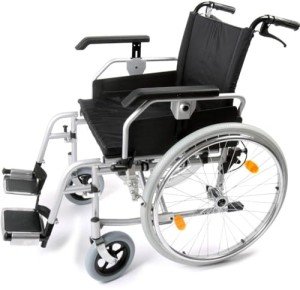Lightweight Bariatric Transport Wheelchair: The Ugly Facts About Lightweight Bariatric Transport Wheelchair

Bariatric Transport Wheelchair
Developed to be pushed by caretakers, transport chairs include smaller sized front wheels and bigger rear wheels. They are a popular option for users with limited mobility who can not stroll independently.
When shopping for a lightweight bariatric transport wheelchair, consider the user's needs and how they'll use the chair. Also, measure any entrances and other spaces the chair will travel through.
Seating
Bariatric transport chairs include a big 22 to 36 inch broad seating area that accommodates extra-large users. The chair seat is made from breathable nylon and comes with cushioned arms that can be eliminated and swing-away footrests. Unlike heavy duty bariatric wheelchair , which are ideal for average body weights, bariatric chairs have heavier frames built from strengthened products and bigger rear wheels that make it simpler to push them. Talk to a mobility expert for more information about your alternatives and to determine which type of wheelchair is best for you. Bariatric wheelchairs are frequently covered by insurance companies like Medi-Cal if your medical condition satisfies their coverage criteria.
Frame
Bariatric transport wheelchairs utilize sturdy frames made from reinforced materials like steel and have broader seats than basic wheelchairs. They are designed for individuals with greater body weights and can hold an optimum weight capacity of 700 pounds. They also have larger rear wheels, that make them simpler for caregivers to push. Bariatric wheelchairs are often covered by insurance coverage such as Medi-Cal, depending on the patient's particular medical needs and medical diagnosis. Ask a health care professional or mobility professional to help pick the ideal chair for your distinct requirements.

Click on this link for more information. Medline Bariatric Transport Chair. Crimson Hammertone Frame.
Weight
While standard wheelchairs have lighter frames and smaller wheels, bariatric transport chairs feature heavier-duty products and a broader seat to accommodate users who weigh more than average. Since of their specialized design and building and construction, they tend to cost more than standard chairs. However, some insurance coverage programs like Medicare and Medi-Cal might cover the expense of these chairs if the user meets the criteria for coverage. For more information about which chair is right for you, contact a rehabilitation professional today.
Wheels
Bariatric transport wheelchairs have larger rear wheels than basic designs, making them much easier to push. They're often used in hospitals and home settings, where the chair is pressed by caretakers. The extra-large rear wheels also permit the chairs to browse a range of terrain, consisting of outdoors.
Standard wheelchairs normally have smaller wheels, that make them more maneuverable inside but less ideal for daily use on outdoor streets and other surfaces. Mobility experts suggest seeking advice from a doctor or mobility expert to pick the very best wheelchair for your particular requirements and objectives.
This durable, nylon reinforced steel transport chair supports clients as much as 500 pounds and includes a spacious 22" seat, padded desk-length armrests, swing-away footrests and hand brakes. The 12-inch rear wheels make sure a smooth ride in any environment.
